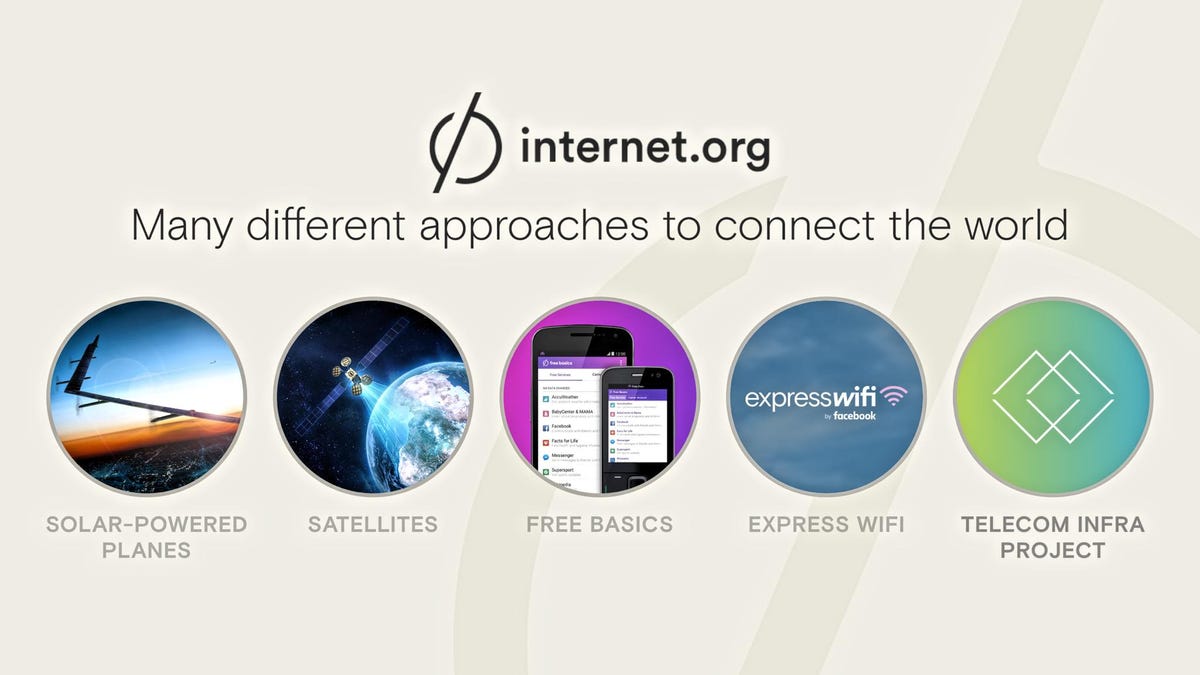Zuckerberg aims to boost Internet backbone in developing world
Facebook is trying to move past the Free Basics controversy by announcing a new infrastructure project to get the developing world online.

Facebook dips its toes into telecoms with its latest Internet.org initiative.
Mark Zuckerberg is making his presence felt at Mobile World Congress 2016. Facebook's chief executive popped up at Samsung's Sunday night press conference ahead of his own keynote at the Barcelona trade show.
On Monday, the CEO switched his focus from social VR to bringing Internet to the world's poorest people with the announcement of a plan to improve network infrastructure. The Telecom Infra project will sit under the umbrella of Internet.org, the partnership headed by Facebook to get the developing world online.
Established Internet.org projects, like Free Basics, have focused on the delivery of specific content to consumer devices or cool concepts involving satellites and solar-powered planes. Telecom Infra, on the other hand, will zero in on ensuring the underlying technology that supports the Internet is properly in place. It might seem mundane, but it sure is fundamental.
"Today we're taking the next step by partnering with telecom companies to develop new technologies that will reduce the cost of building mobile networks all over the world," wrote Zuckerberg in a Facebook post.
More than 50 percent of the global population still don't have access to an affordable Internet connection, and the UN is expected to miss its target of getting the world online by more than 20 years, according to a report released by the Alliance for Affordable Internet on Monday. In order to make sure a whole generation doesn't miss out on the benefits of Internet connectivity, new strategies that promote affordability will need to be put in place across network deployment, broadband plans and devices.
Facebook's efforts, though, have created some controversy. Since the launch of the Internet.org initiative in 2014, Zuckerberg has faced accusations of Facebook dressing up self-interest as philanthropy.
Earlier this month India banned Free Basic, a service that provides free access to Facebook and several other approved services. The Telecom Regulatory Authority of India said it had the potential to create a two-tier Internet that would divide the rich and the poor.
Internet.org remains a coalition of companies. Nokia, Intel and several operators are pitching in with Telecom Infra, which is essentially an engineering project.
Lowering the cost of infrastructure to deploy networks in both rural and urban areas won't just benefit developing countries. British mobile network EE is working with the project to spread speedy 4G Internet to the far reaches of the Scottish Highlands.
Zuckerberg will be discussing Telecom Infra and other Internet.org projects later today during a fireside chat at the Barcelona show. CNET will be in attendance to bring you all the news at it happens.

